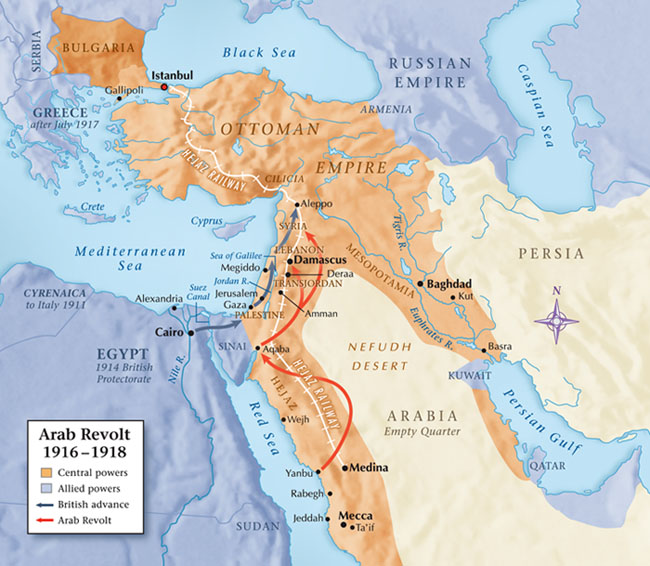Centenary of my great-grandmother's death in World War I
This summer marks the 100-year anniversary of the civilian casualties in “Greater Syria,” which included my Maronite Catholic great-grandmother, Mariam Rayes, and my great-uncle Jacob Rayes. They were killed during a revolt against the Ottoman Empire in May and June 1916. I do not have an exact date, but British forces worked their way north from Egypt, through Mount Lebanon (which includes my family’s home village a few miles northeast of Beirut), and into Turkey. Simultaneously there was an “Arab Revolt” which worked its way from what was then Arabia, into Syria, and finally into Turkey.
Sometime in the summer of 1916, imperial forces from Turkey fought either the British or the Arab rebels In the Mount Lebanon region and my family was killed. I don’t know how they died but World War I was the first modern war, with long-range shells, air combat, and full automatic rifles.
The Lebanese people and my family suffered greatly. There was widespread famine and of course, civilian casualties as European and Middle Eastern politics pushed various factions against each other.
I cannot paint this as a fight of Muslims against Christians. My great-grandmother’s death was senseless and a simple matter of being caught in a war. But the politics behind it were complex; we learn from Our Lady of Fatima that World War I itself was a chastisement which was allowed by God to shock the world back to its senses. It didn’t work: shocked, yes; sensible, never. At the time they naively called it “the War to end all wars.”
There were Christians and Muslims on both sides during various facets of the war, which as far as my family was concerned, was a desperate grasp of power between British and French on one side, Germany and what is now Turkey on the other side, and the Rayes family in the middle. The war was launched by devout Catholics in Austria and escalated by “freedom fighters” in my family’s ancestral home, who were given conflicting promises by the British and French, and eventually led by T.E. Lawrence (Lawrence of Arabia). But all this passion and patriotism cost my great-grandmother and my great-uncle their lives in their own village. My grandfather was 26 years old in America when he received the telegram of their deaths.

I will pull two lessons from this. One, ideas have consequences. I am a traditional Catholic and I also have a romantic political tendency to root for the underdog; to advocate libertarian and subsidiary government. I dislike big government and I distrust all levels of government and all governing bodies. Yet, my great-grandmother was killed 100 years ago because of a rebellion against the Ottoman Empire, in a war begun by conflict between Austrian Catholics and Serbian Orthodox. Politics played a far, far greater role than religion regarding the war, but the first lesson is that we must be prudent and prayerful when developing one’s own worldview. Rash, inflamed passion and misguided nationalism play exactly into the hands of rich, manipulative politicians. Innocent people thus die. (Catholic Austrians in full military dress came to the pope for his blessing when they were starting the war in 1914. He yelled from his balcony window, “we bless peace, not war!” and walked away, refusing to grant a papal blessing.)
The second lesson is that regardless of my own guarded and even hostile feelings about these United States of America, the nation’s Masonic origins, its vague pan-Theistic founding documents, and its unnecessary devolvement from a confederated republic into a military empire, I owe my very existence to it. If my grandfather had not emigrated to the United States a year before World War I broke out, he would have been killed alongside his brother and mother in his hometown in Lebanon. I thus would not exist.
Join me, as I reflect on my own fatherhood, in raising a generation of godly Catholic Americans who will benignly but assertively shape our country to be ruled by Christ the King, the Prince of Peace.